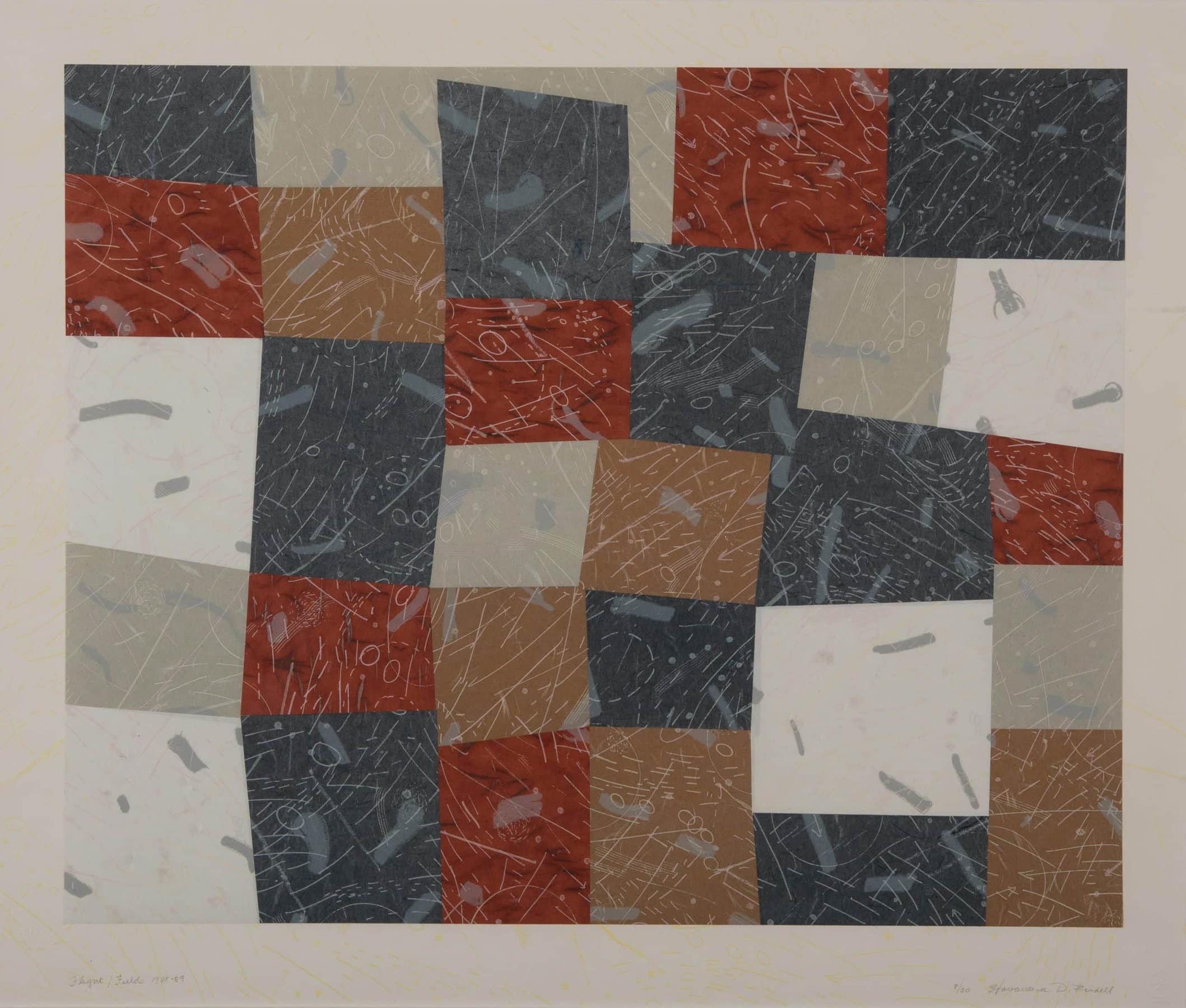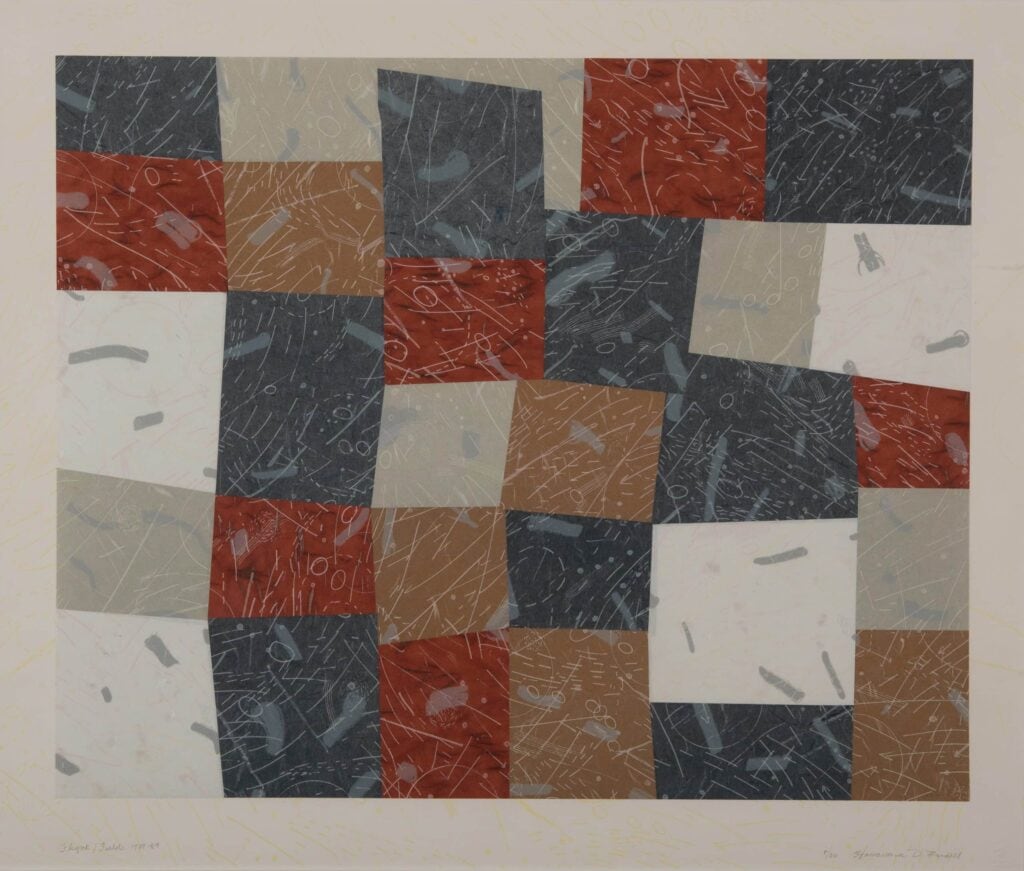
Howardena Pindell is an American mixed media artist and painter trained at Boston and Yale universities. She is known for exploring processes through her artmaking, utilizing unique textures, colors and compositional structures across her media. Much of Pindell’s work is political, addressing racism, feminism, slavery and exploitation.

In 1972, Pindell co-founded the first artist-directed gallery for women artists in the United States, the Artists in Residence Inc. Gallery in New York, asserting her place in art history as an African American woman. The AIR Gallery allowed women artists to curate their own exhibitions and take risks that traditional galleries were not willing to allow. Along with her work for AIR, Pindell spent 12 years working in various capacities for the Museum of Modern Art. These unique influences converged to inform Pindell’s work in the late 1970s and 1980s, when she was exposed to a number of exhibitions at AIR and MoMA. One exhibition that Pindell cites as resonating with strongly was the MoMA’s collection of Akan batakari tunics in African Textiles and Decorative Arts. These influences led Pindell to the labor- and process-oriented approach to her work for which she is most well-known — one in which she deconstructs and reconstructs her paintings by cutting the canvases and sewing them back together.
Flight/Fields is representative of a multiyear printmaking collaboration with Judith Solodkin of SOLO Impression Inc. Solodkin completed a print portfolio of AIR artists in the early 1970s — the first time Pindell had worked with a master printer. SOLO Impression went on to print many of Pindell’s works. Flight/Fields has the appearance of deconstruction and reconstruction prominent in much of Pindell’s painted work. The print’s subject — the gridlike view of farm pastures as seen from a plane — was depicted by Pindell many times. The artist dislikes flying but has overcome that fear throughout her years of travel, much like she has overcome the criticism of her increasingly political later works.
“There was a nostalgia for my nonissue related work of the 1970s,” Pindell says in an article on contemporary feminism published by Art Journal. But her dedication to combating racism and discrimination through her art, travel, writings and lectures gives her the strength to fly in the face of misguided nostalgia.

